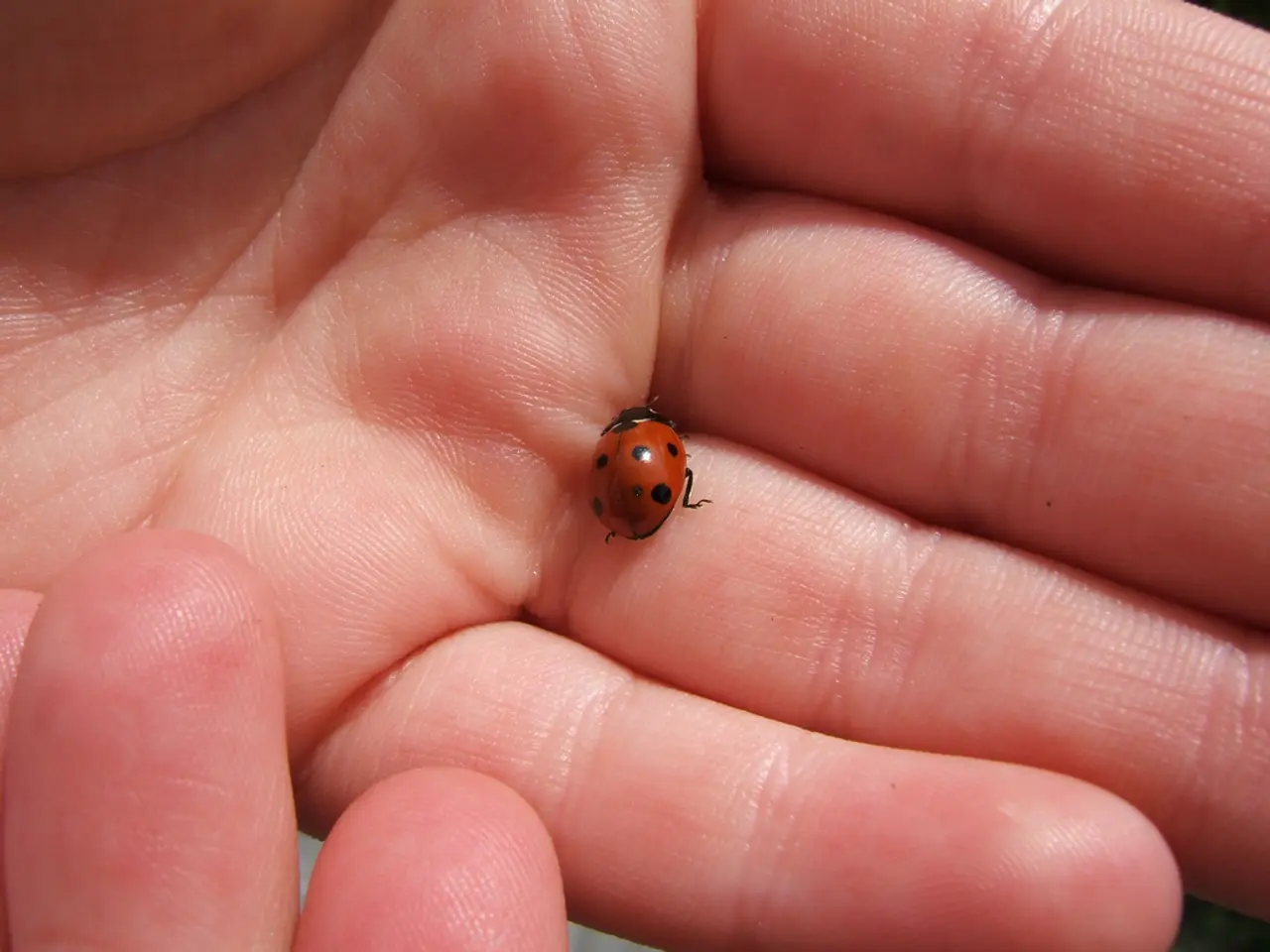Thumb Sucking in Adults: Reasons, Consequences, and Solutions for Cessation
Thumb sucking, a behaviour often associated with childhood comfort, can persist into adulthood for some individuals. This habit, while natural, can potentially lead to dental problems, blisters, and even the development of certain health conditions, according to the American Dental Association (ADA).
Thumb sucking in adults can stem from various causes. Habit formation, anxiety and stress relief, tongue tie or dysfunction, and the pursuit of comfort and security are common factors. In some cases, age regression, a psychological phenomenon, may be at play, with adults adopting behaviours of someone younger than themselves.
Breaking the thumb sucking habit in adults often requires a tailored approach, taking into account the individual's specific causes and needs. Cognitive-behavioral therapy (CBT) can help identify and change the underlying behaviours and thoughts that contribute to thumb sucking. Oral appliances, such as mouth guards, can be used to deter thumb sucking by making it uncomfortable or less satisfying.
In cases where thumb sucking has led to dental malocclusions, orthodontic treatment may be necessary to correct alignment issues. If underlying tongue tie is contributing to thumb sucking, addressing the condition through a frenectomy (a surgical procedure to correct the issue) may be beneficial.
Stress management techniques, such as meditation, yoga, or mindfulness, can help manage stress and anxiety, reducing the need for thumb sucking as a coping mechanism. Consulting a doctor or therapist may also be beneficial for those concerned about their thumb sucking habit, with a dentist providing assistance with any impact on the teeth.
It's important to note that blisters, fluid-filled lumps that form under the skin due to skin damage, can occur due to excessive thumb sucking. Passive thumb sucking, however, is less likely to lead to tooth misalignment.
Thumb sucking is a common behaviour in children, with around 70%-90% of children sucking their thumb. However, as individuals grow and develop, it's crucial to address and manage this habit to prevent potential health issues in adulthood.
In adulthood, thumb sucking may persist due to factors like habit formation, anxiety relief, tongue tie or dysfunction, comfort seeking, or even age regression. The American Dental Association (ADA) warns that this habit can lead to dental problems, blisters, and potential health conditions. Breaking the habit often requires a personalized approach, using methods such as cognitive-behavioral therapy (CBT), oral appliances like mouth guards, stress management techniques like meditation and yoga, or seeking professional help from a doctor or therapist. It's also significant to address tongue tie through a frenectomy if it contributes to thumb sucking. Furthermore, investing in education and self-development areas like health-and-wellness, mental-health, fitness-and-exercise, nutrition, career-development, and personal-growth can also assist in managing stress and reducing thumb sucking.




